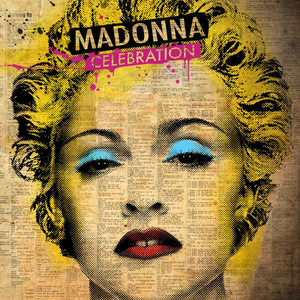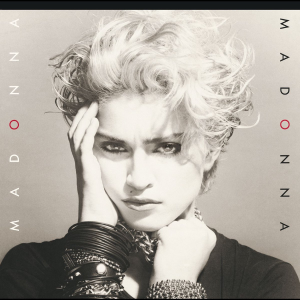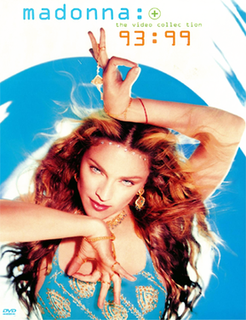 W
WCelebration is the third greatest hits album by American singer-songwriter Madonna, and the final release under her contract with Warner Bros. Records, her record company since 1982. The release follows her two previous greatest hits albums, The Immaculate Collection (1990) and GHV2 (2001). The compilation was released in many different formats including a one-disc edition and a deluxe two-disc edition. A compilation DVD, entitled Celebration: The Video Collection, was released to accompany the audio versions. The album includes three new songs, the title track which is included on all versions, "Revolver" which is included on the deluxe editions, and "It's So Cool" which is included as a bonus track on some deluxe digital versions. A fourth song, "Broken", was recorded for the album but not used; eventually it was released in 2012 as a limited edition promotional vinyl single for fanclub members.
 W
WCelebration: The Video Collection is a greatest videos DVD compilation by American singer-songwriter Madonna. Released by Warner Bros. Records on September 29, 2009, the release accompanied the greatest hits Celebration. The collection follows on from her other greatest videos compilations The Immaculate Collection (1990) and The Video Collection 93:99 (1999). The release of the DVD was announced in July 2009 and contained videos spanning Madonna's entire career from 1983 to 2009.
 W
WThe Complete Studio Albums (1983–2008) is a box set by American singer-songwriter Madonna. It was released by Warner Bros. Records on March 26, 2012, to coincide with the release of her twelfth studio album, MDNA. The eleven-disc box set was released in Europe and Japan, and included all of Madonna's studio albums from the years 1983 to 2008. The album artwork consisted of a collage of the album covers, housed in a gold box. It also included a Parental Advisory sticker due to the original version of the albums Erotica (1992) and American Life (2003). On the same date, Warner Bros. released and reprinted another box set titled Madonna: Original Album Series which included five discs.
 W
WGHV2 is the second greatest hits album by American recording artist Madonna. Maverick and Warner Bros. Records released it on November 12, 2001, coinciding with the video album, Drowned World Tour 2001. A follow-up to The Immaculate Collection (1990), GHV2 contains a collection of singles during the second decade of Madonna's career. Madonna mentioned that she only included "songs that I could listen to five times in a row" on it. The album did not contain any new songs, but a promotional single titled "GHV2 Megamix", was released, which contained remixes by Thunderpuss, John Rocks & Mac Quayle and Tracy Young. A promotional remix album was also issued, titled GHV2 Remixed: The Best of 1991–2001.
 W
WThe Immaculate Collection is the first commercially released music video compilation by American singer-songwriter Madonna. Released by Warner Music Vision, Warner Reprise Video and Sire Records on November 13, 1990 to accompany the audio CD, it contained music videos for singles released between 1983 and 1990. The collection won "Best Long Form Video" category at the 1991 MTV Video Music Awards.
 W
WThe Immaculate Collection is a greatest hits album by American singer Madonna, released on November 9, 1990, by Sire Records. It contains new remixes of fifteen of her hit singles from 1983 to 1990, as well as two new tracks. Its title is a loose pun on the Immaculate Conception, the conception of the Virgin Mary without the stain of original sin. An extended play titled The Holiday Collection was released in Europe to accompany the compilation and the re-release of the single "Holiday". It is the first album ever to use the audio technology QSound.
 W
WMadonna is the debut studio album by American singer-songwriter Madonna, released on July 27, 1983 by Sire Records. After having established herself as a singer in downtown New York City, Madonna was signed by Sire president Seymour Stein, due to the club success of her debut single, "Everybody" (1982). She became the sole writer for most of the album's tracks, and chose Reggie Lucas as its primary producer. Unhappy with Lucas's production outputs, she invited John "Jellybean" Benitez to complete the album, who remixed three tracks and produced "Holiday".
 W
WAmerican singer Madonna has released 14 studio albums, three soundtrack albums, five live albums, six compilation albums, and 35 other limited releases. In 1982, Madonna signed a recording contract with Sire Records, a label owned by Warner Bros. Records. The first release under the label was her self-titled debut album, Madonna (1983). It peaked at number eight on the Billboard 200 and was certified five-time platinum by the Recording Industry Association of America (RIAA). She followed the debut album with Like a Virgin (1984), which became her first chart-topper in various countries and was certified diamond by the RIAA. Her third studio album, True Blue (1986), reached number one in then record-breaking 28 countries and was once named the best-selling album by a woman of all time by the 1992 edition of Guinness World Records. During 1987, she released two albums that reached platinum status in the United States: the Who's That Girl soundtrack and her first remix compilation, You Can Dance. Madonna's fourth studio album, Like a Prayer (1989), made her the woman with most Billboard 200 number-one albums of the 1980s.
 W
WSomething to Remember is a compilation album by American singer Madonna, released by Maverick Records on November 3, 1995. The album was conceived after a controversial period in Madonna's career, when many critics had speculated that her career had declined. It compiles ballads spanning over a decade of her career, including a reworked version of "Love Don't Live Here Anymore" and three new songs: "You'll See", "One More Chance" and a cover of Marvin Gaye's "I Want You". The album also features previously released singles that had never been included on a Madonna album, "I'll Remember" and "This Used to Be My Playground", and altogether provided a softer image for the singer during a critical period in her career.
 W
WThe Video Collection 93:99 is the second music video compilation by American singer-songwriter Madonna. Released by Warner Music Vision, Warner Reprise Video and Warner Bros. Records on November 9, 1999, it contained music videos for singles released between 1993 and 1999. Originally, the collection was titled The Video Collection 92–99, and had included the 1992 video "Erotica", but it was omitted due to its sexually explicit content; instead the 1998 song "The Power of Good-Bye" was added. The videos in the collection were selected personally by Madonna, who felt the 14 videos to be her best work.
 W
WThe Video Collection 93:99 is the second music video compilation by American singer-songwriter Madonna. Released by Warner Music Vision, Warner Reprise Video and Warner Bros. Records on November 9, 1999, it contained music videos for singles released between 1993 and 1999. Originally, the collection was titled The Video Collection 92–99, and had included the 1992 video "Erotica", but it was omitted due to its sexually explicit content; instead the 1998 song "The Power of Good-Bye" was added. The videos in the collection were selected personally by Madonna, who felt the 14 videos to be her best work.